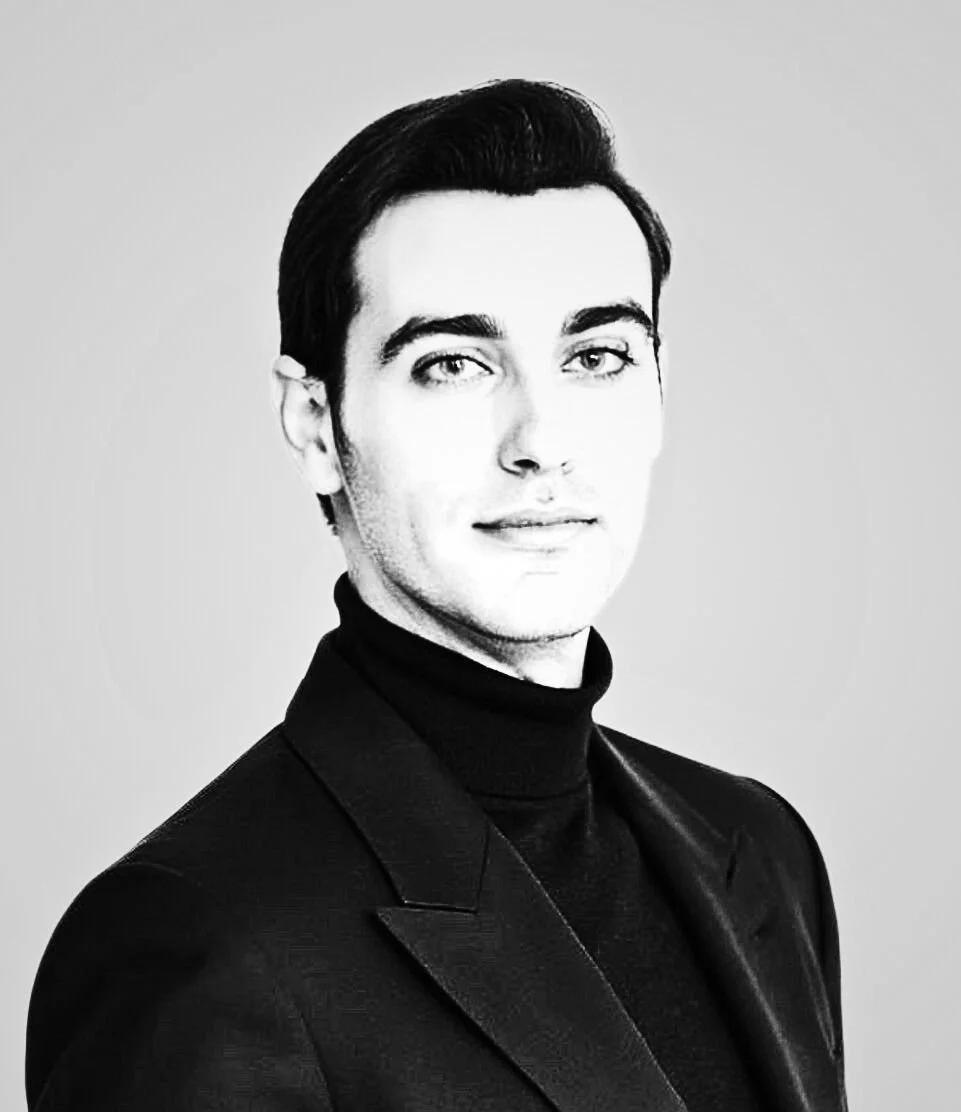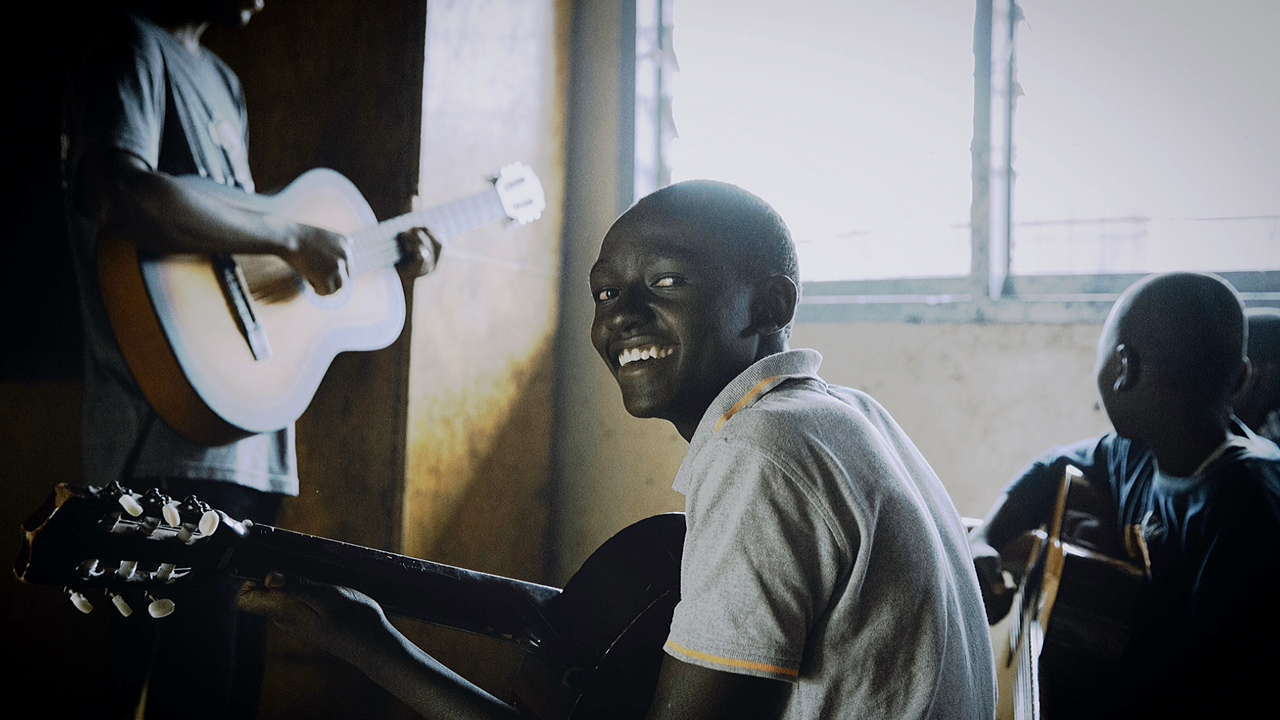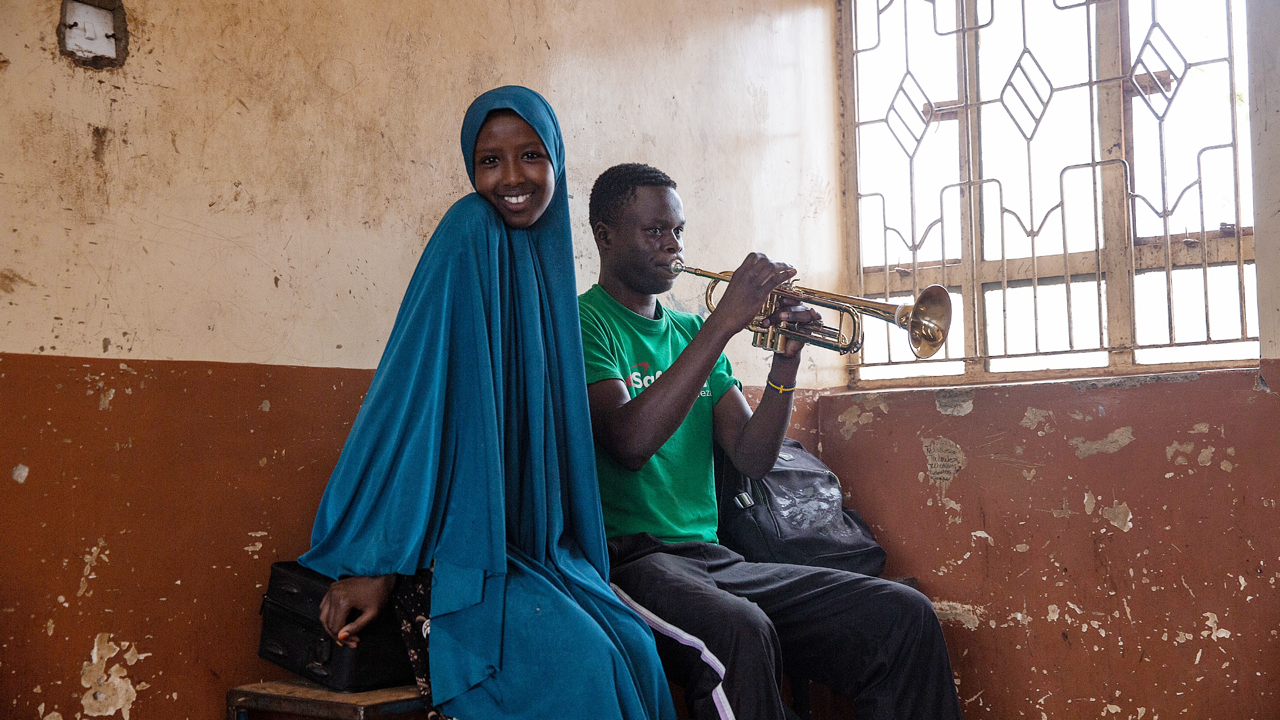Christopher Coritsidis On Why The Arts Are Essential For Driving Systems-Level Change
Christopher Coritsidis is an artist, advocate, venture philanthropist, and exited entrepreneur based in New York City.
Named by The London Times as “one of the most promising violin talents to emerge from Europe, Asia, and the USA in the past twenty years…” and as an artist possessing a “flawless technique and boundless imagination", Christopher has appeared on some of the world’s most famous stages, including New York’s Carnegie Hall, Tokyo’s Minato Hall, the Het Concertgebouw in Amsterdam, and the Philharmonie in Berlin, and performed as a guest soloist with the New York Philharmonic, St. Petersburg Philharmonic, and others.
Christopher founded the Opus 1 Foundation in 2016 following a benefit concert tour to Kenya, where he was inspired by the Ghetto Classics program and the transformative impact of music education for children in Nairobi. Today, Opus 1 is a global impact organization harnessing the power of the arts to drive systemic, sustainable solutions across education, the economy, and the environment.
As CEO, he leads initiatives that bring together creative visionaries to address pressing global challenges, advancing new models at the intersection of the arts and social impact. His recent speaking engagements include the Do One Better Podcast, the Art of Impact Summit, the Concordia Annual Summit in New York City, and an upcoming engagement with GlobalMindED at the United Nations.
He holds a BA from The Juilliard School and a BM from Columbia University, as well as an MBA in Finance & Technology from M.I.T. in Cambridge, Massachusetts.
Christopher discusses how the arts serve as a force multiplier in creating systemic solutions and why social enterprises need to embrace creativity alongside innovation and technology to catalyse sustainable change.
Highlights from the interview (listen to the podcast for full details)
[Indio Myles] - To start off, can you please share a bit about your background and what led you to your work in the arts and social transformation?
[Christopher Coritsidis] - My journey began as a musician. I started playing the violin at around eight years old and then started performing professionally around 15. For the next 12 to 13 years of my life, I had the privilege of having my passion be my profession.
I was travelling the world, experiencing different cultures, and developing a holistic view of what it meant not only to be an artist but also a member of a global community. Over time, I began to see how the arts are a tool for transformation, not only as they are, but also as they could be.
That learning realisation, from starting to play the violin at eight years old through to my late twenties as a professional, led me into the impact space where I began to explore, both as a musician and through Opus 1, how the arts can catalyse systems and social, economic, and environmental solutions to drive real, tangible, measurable change.
As the founder and CEO of the Opus 1 Foundation. I’d love if you could share more about the organisation and how it’s harnessing the arts to drive systemic solutions?
Opus 1 started in 2016. I was invited to go to Kenya for an outreach tour with this amazing program, Ghetto Classics, which was bringing music education to children living in impoverished communities in Nairobi. I had the good fortune of going and speaking to the power of the program and how it was changing these young lives.
I also witnessed firsthand, as a musician, the true power of music within a community like this. More kids were staying in school, they were graduating, and they were securing better jobs over the long term. This ended up being the inspiration for Opus 1 Foundation.
We operate under the belief in the arts as a force multiplier; an activator and accelerator of social, economic, and environmental solutions. Our programs, at their core, use creative innovation as a resource to address systemic issues. From there, we have an impact framework that lays out a clear pathway towards meaningful outcomes like access to education, equitable job opportunities, and better mental and physical wellbeing.
For me way back in 2016 (and still to this day) it has been incredibly important Opus 1 would not necessarily be an arts organisation, but a collective of impact-driven individuals and institutions who understood the power of the arts. These are people who know how to channel that power towards delivering measurable, tangible solutions and opportunities for communities like those in Kenya, and others worldwide.
You started your career as a musician and celebrated violinist. How has your career shaped your understanding of how the arts can create transformational change? Are there any key, defining moments you would be willing to share?
Being a musician and having the privilege of doing it professionally brought me to so many different places and spaces around the world that I otherwise wouldn’t have had the opportunity to enter.
From what I learned during that part of my life of being an active, professional musician, I also experienced firsthand the arts and their ability to transcend what divides us: language, policy, ideology, religion, whatever it might be.
I do remember back in 2014, there was a particular political situation unfolding in Ukraine with Crimea. I was on stage with a musician (who I won’t name) who was very much on the opposite side of the political and ideological spectrum to my own beliefs, especially in light of that particular conflict. But despite our differences, we put that aside and went on stage to make music together. That act of connection, between the two of us, with the orchestra, and more broadly with the audience, was incredibly powerful.
What was interesting about that performance was how palpable the tension was. I’ll give some insight into my personality and say I’m pretty vocal. I’m not known for being a wallflower, so people tend to know how I feel about certain situations. But we shared this performance, which was special, and perhaps the tension in the air even contributed to the electricity in the room.
After the performance, back in the green room, we had a very honest and open discussion about the situation. It wasn’t approached from a place of ideology or politics or the things that divide us.
It was a human-to-human conversation around why this is problematic and how, at the end of the day, we need to come together and look at what the human-based solutions are. Because in a conflict area or zone, there is no winner. We’re all losing at the end of the day.
That experience was particularly powerful for me, and so I’d say in being a musician and understanding the role of artists and creative visionaries, it’s that we are looking to be connectors in the world amidst the chaos.
With Opus 1, you work with cultural leaders, creatives, and visionaries who are trying to solve complex global systemic challenges. Do you have any advice for people operating in that space on how to uniquely address these issues?
I would say the place we all need to start is with empathy. You need to start in that space, not with one’s ego. Within our domain, it’s something we’ve acknowledged and recognised: creativity is powerful, but without purpose, it lacks direction.
In terms of advice, I’d say you need to start by being a compassionate individual and make sure that your mission aligns with those you’re looking to serve at the end of the day. Co-create with them. Don’t be afraid to start small. Something we’ve learned over the past few years (and in the nine years we’ve been operating at Opus 1) is that the biggest transformations often begin as small experiments.
Sometimes it’s as serendipitous as showing up in Kenya for an outreach tour in 2016, and you don’t know what’s going to unfold.
If you’re someone of high conviction, someone who believes you have something meaningful to bring to the world, you’re willing to put in the hard work to see it through, and your compass is pointing you in the direction of lasting impact, then go and do it. But always remember that anything in life that’s worthwhile is either worth waiting for or fighting for. Lasting impact doesn’t happen overnight. It’s a marathon, not a moment in time.
That’s something to always keep in mind, for sure.
What emerging opportunities are you seeing for collaboration that could help bring forth arts-led initiatives generating impact?
I’d say there’s so much potential right now with how the worlds of technology, particularly biotech and ed-tech, are evolving. Technology has unlocked a range of opportunities when you couple it with the arts and creative innovation.
What we’re especially excited about at the Foundation (and where we’re actively looking to invest) is in collaborations between artists, scientists, and technologists who are re-envisioning the role of the arts in medicine and therapeutic practices. This is particularly in areas like neurology and oncology. There’s a lot of exciting momentum and new findings that show the power of the arts, not only for our mental wellbeing, but also our physical wellbeing.
Education is another important space. It’s always a focus, and we’re consistently advocating for STEAM education programs instead of just STEM. The arts need to be there to help develop the next generation of leaders, so they become well-rounded individuals who nurture both left and right brain function. It’s also essential for helping students perform at their best in science, technology, engineering, and mathematics.
Now, not everyone needs to become an artist professionally, God forbid! But everyone can lean into their creative essence. It’s something unique to us as human beings and can be used to your benefit, no matter what you pursue in life or what your interests are.
What also remains timeless is cross-border cultural diplomacy and artists as ambassadors. We’ve always played that role, and I believe we always will. Right now, as a society and with where we’re heading, these are the areas where the arts (working across sectors) are going to drive progress in truly meaningful ways.
What advice would you give to a changemaker who wants to bring creativity into their purpose and the impact they’re trying to create?
When it comes to creativity and embedding it into systems to generate meaningful change, it’s important to acknowledge how much of the problem-solving world today is data-driven. But data only takes you so far if it’s not coupled with the human dimension of impact.
Embedding creativity into one’s impact work is done through storytelling, design, and cultural engagement. That’s where leaning into those creative elements and the arts as a whole becomes so powerful. They help translate complex issues (things we might intellectually understand)into something we feel. This is crucial, because when we feel, we act. Whether you see yourself as a creative or not, if you embrace the arts as playing a critical role in translating complex issues into forms that people can understand and act on, you’ll be far more effective. It’s also a powerful bridge builder that creates space for empathy, compassion, and understanding.
Beyond that, the arts are great catalysts for progress. If you embrace creativity, you open the door to discovery.
What inspiring projects or initiatives have you come across recently that are creating transformational change?
I’d say there’s one organisation based here in New York called Project Healthy Minds. It’s a Gen Z and millennial-driven organisation that’s using creative expression and technology to de-stigmatise mental health and make access to mental health tools more available.
There’s also an incredible company in the arts called AXIS Dance Company. It’s an integrative dance group that’s been championing accessibility in the arts for decades. They’ve done so much amazing work, and we’ve had the privilege of working with them in partnership.
Then there are some newer groups I’ve had the pleasure of meeting. One is the Climate Cardinals, a global youth collective tackling the climate crisis through universal literacy around environmental sustainability.
Finally, I have to mention some of my musical heroes, like Daniel Barenboim, an Argentinian-Israeli conductor who, with his friend Edward Said, a Palestinian-American academic, started the West-Eastern Divan Orchestra. For decades, they’ve used music to foster peace and dialogue through music-making.
These are examples of initiatives across different sectors and spaces that are using creativity to be impactful in the world.
To finish off, what books or resources would you recommend to our audience?
First and foremost, I definitely recommend Your Brain on Art by Susan Magsamen and Ivy Ross. Susan published a groundbreaking book exploring how acts of art contribute to our mental and physical wellbeing from a scientific perspective. That’s the first one on the list, so if you’re someone interested in digging deeper into how the arts actually impact us physically and mentally, that’s the book you should be picking up, today!
Next, I’d recommend The Creative Act by Rick Rubin. It’s a beautiful, almost meditative book on process and purpose. If you’re a social entrepreneur, aspiring changemaker, or someone simply looking for direction on how to be impactful and find meaning beyond your nine-to-five, it’s a fantastic read.
Lastly, I’d recommend you read Let My People Go Surfing by Yvon Chouinard, the founder of Patagonia. I think someone else on this podcast may have recommended it before, and rightly so. It’s a great example of a values-driven leader and is highly inspirational for anyone working in the impact space.
Initiatives, Resources and people mentioned on the podcast
Recommended books
Your Brain on Art: How the Arts Transforms Us by Susan Magsamen and Ivy Ross
The Creative Act: A Way of Being by Rick Rubin
Let My People Go Surfing by Yvon Chouinard










